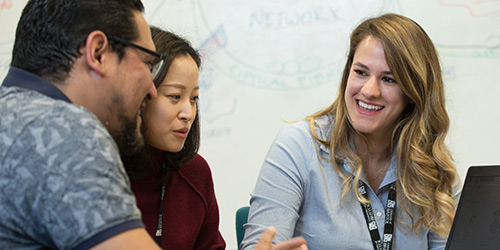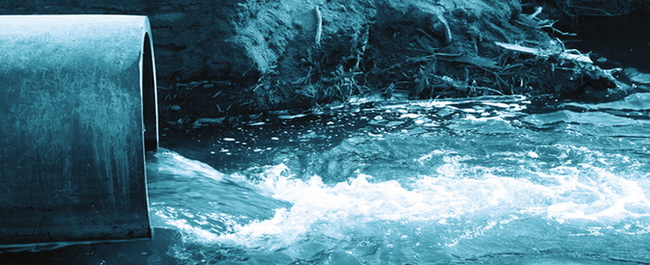Ice Pigging technology cleans up on a global scale
The University of Bristol’s patented ice pigging technology for cleaning pipes has grown into a global industry.
Until the early 2000s, the essential cleaning of industrial pipes was only possible using techniques that risked damage to both the pipes and the environment. Work at the University of Bristol has helped to solve this problem with innovative ‘Ice Pigging’ technology that has now been acquired by Suez, the second largest water company in the world.
Overcoming longstanding problems
Traditionally, companies have used one of two methods for cleaning and unblocking pipes. The first involves propelling a solid piston-like object (or ‘pig’) through pipes that need to be reasonably straight and of constant diameter. Such pigs can be damaging to pipe walls and require purpose-built launch and receive stations.
The second method, liquid flushing, uses huge volumes of water and harsh chemicals and can fail to achieve the right velocity for effective cleaning in large-diameter pipes. This process can also be time-consuming – causing major issues for sectors like food manufacturing that often need to clean pipes daily and may require additional staff to disassemble equipment.
The Ice Pig concept
Initial research at Bristol, starting in 2001, focused on developing and patenting Ice Pigging as a Clean in Place method (i.e. requiring no disassembly) that uses a concentrated suspension of ice particles in a solution containing a freezing point depressant such as salt, otherwise known as an ‘ice slurry’.
The method enables technicians to pass the slurry into a pipeline and quickly form a plug that can be pushed through the pipe-work with a pressure differential. The slurry can form a plug whenever possible, and can also flow through restrictions and complex topologies when needed. In the event of a blockage, the Ice Pig simply melts away and avoids costly excavation works. It is also possible to introduce Ice Pigs into complex networks of pipes through existing valves and avoid expensive enabling work.
Trials by the Bristol team proved that ice pigging uses a tenth of the water of traditional methods, reduces the need for chemicals in the cleaning process and shortens downtime during cleaning programmes.
The team also founded two spin-out businesses: PCIP, which it formed to disseminate, licence and commercialise the technology, and ADHQ, which provided expert design, assembly and commissioning of Ice Pigging systems for companies wanting to deploy the technology.
Major benefits for industries around the world
Ice Pigging has revolutionised the way pipes are cleaned globally and has delivered significant benefits for businesses.
In 2015, global water services company Suez bought the universal patent for the technology and also acquired both the PCIP and ADHQ spin-outs. Since then Suez has reported an annual turnover of up to £6.5 million from the solution and employs up to 100 people to deliver it.
Suez now cleans up 100-200km of customer pipework a year in the UK for customers including Welsh Water, Northumbrian Water, United Utilities, Southern Water, South East Water, South West Water and Wessex Water. Internationally, Suez has delivered Ice Pigging extensively in Europe, the US, Japan, Australia and Singapore, cleaning a total of 4,500km of pipes globally over a five year period.
Ice Pigging has also had significant economic impact for Somerset-based Barvick Engineering, which originally collaborated with Bristol’s researchers to develop Ice Pigging equipment. Barvick has continued to supply equipment for Suez, with Ice Pigging equipment sales now accounting for around 20% of the company’s turnover.
Suez has also successfully implemented Ice Pigging in many other industries including heating, food, cosmetics, manufacturing, chemical and power generation – proving that it is an adaptable solution that will be helping to reduce waste, save time and increase efficiency in a wide variety of settings for many years to come.
 Work with us
Work with us
Our Industrial Liaison Office helps you to develop research partnerships.
Quick facts
- Ice Pigging creates new industry generating £6.5m globally
- Benefits for industries such as water, heating and food manufacturing include reduced waste, increased efficiency and a lower environmental impact
- Internationally, Suez has delivered Ice Pigging extensively in Europe, the US, Japan, Australia and Singapore, cleaning a total of 4,500km of pipes globally over a five year period.
